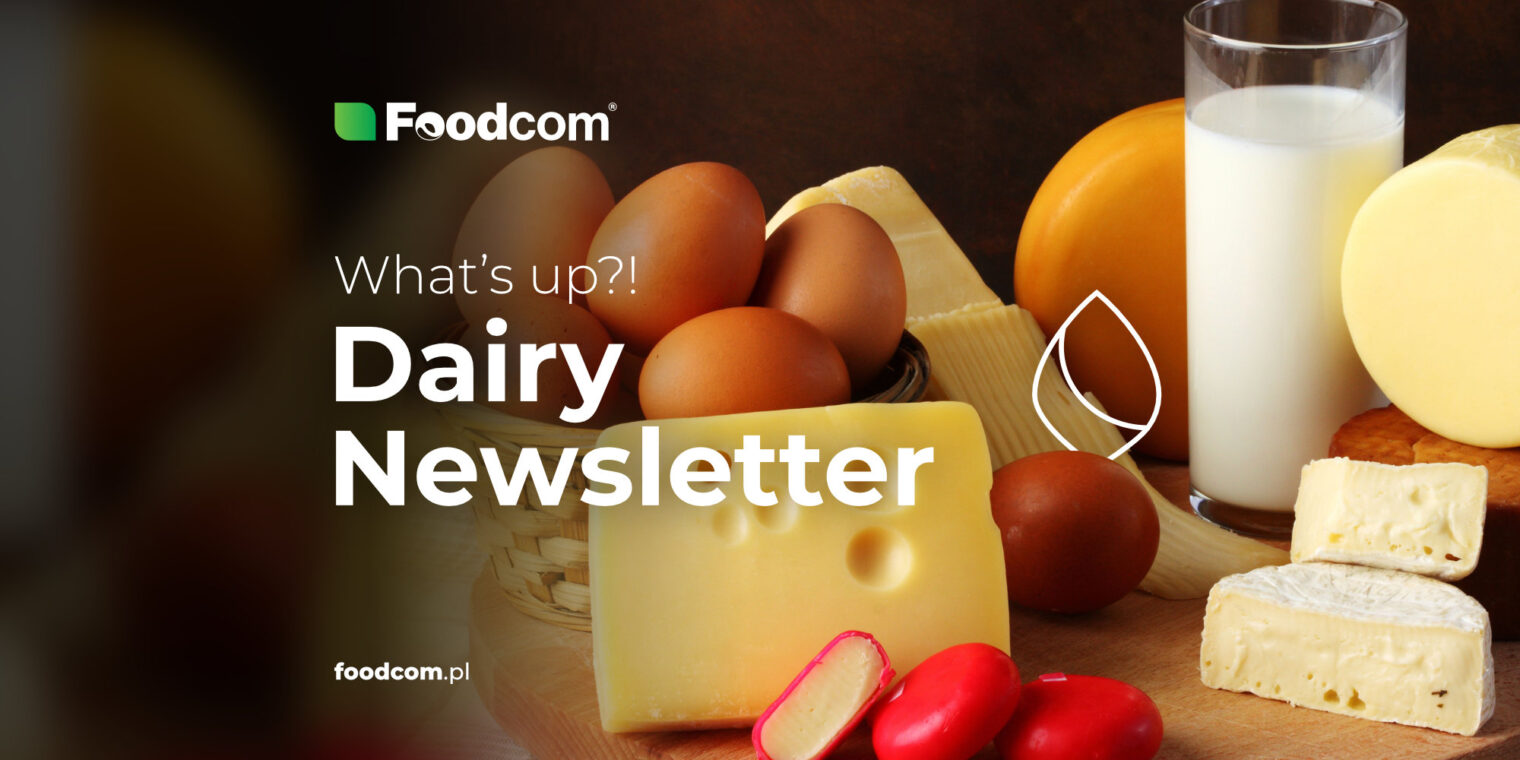Resumen
Índice
In Europe, high temperatures in June may have further affected cow welfare and accelerated the seasonal decline in milk production. In the case of Italy, a state of emergency has been declared due to the drought and efforts are underway to address the water crisis. Some experts fear that the water crisis will not bypass other European countries and thus the agricultural industry unscathed.
Taking a look at the market, we can definitely say that inflation is growing stronger. In the UK, numerous dairy products, such as butter, have already been hit by shocking price increases. Ice cream will be the next product to fall victim to the price hike. The summer treat is getting more expensive as manufacturers face high prices, and the Internet is filled with discussions regarding the soaring prices. After numerous posts on social media, and newspaper articles highlighting the high cost of Lurpak brand butter in supermarkets, the butter brand responded by saying that the price of its products had been raised so that dairy farmers under pressure would get a fair rate. Photos circulated on social media showing cubes of butter with security labels to prevent theft. This is a scene to which surely no one is accustomed.
Dairy producers are facing high input costs, labor shortages and weather conditions; they’re trying to make maximum profit, so these conditions are surely about to leave a stain on every market participant – from buyers to consumers.
Continue reading to learn about this week’s market insights.
With us, you’ll never miss a thing!
The prices of skimmed milk have seen ease in the past week. Prices are still at a higher-end despite the GDT results that took place recently. Customers remain and follow the spot market decisions upon received offers to commit towards the most reasonable price and quality provided.
The price range among participants from the European Union remains high. Trade rates in the West remain stable or could be stated as slightly declining, while the range in Eastern Europe remains particularly stable. Prices of Western FCMP stay higher than the Easter ones. However, buyers are in a preference of using the Western material at a slightly higher price.
The market for whey products has seen greater availability throughout the last few weeks. Commodities for both sweet whey and whey concentrate are visible on the market and possible to acquire at lower end prices. Comparing the two regions of Europe and the United States of America, we see an increase in prices of all whey commodity products throughout the last week, as well as fats, thus including butter. Products mentioned are not far away in price comparison to both continents, however signs show that prices will become relatively close to one another.
Customers expect that the price for Gouda/Edam shouldn’t be above 4.95 EUR/kg DAP and at the same time the Producers are not willing to produce the cheese below the cost which is around 5 – 5.05 EUR/kg EXW. We’ve received a handful of offers for older or stored material from the suppliers for yesterday’s collection with a modest quantity being available. Although when the market is stable customers receive many alternatives and choose the best one.
The only reason we’ve seen an increase in Polish butter throughout the last week was only due to the currency exchange rate which took place. Therefore, this was the only market where cream was kept firm.
We see slight trade rate differences between the products in the European market. In the United Kingdom, spot prices for milk have fallen, but cream prices continue to rise in light of low purchases. In contrast, German cream prices fell only slightly in the last week, as supplies remained limited. Milk fat levels also left much to be desired. Weak demand was reported, attributed to the upcoming vacation season.
Taking a look at the market, we can definitely say that inflation is growing stronger. In the UK, numerous dairy products, such as butter, have already been hit by shocking price increases. Ice cream will be the next product to fall victim to the price hike. The summer treat is getting more expensive as manufacturers face high prices, and the Internet is filled with discussions regarding the soaring prices. After numerous posts on social media, and newspaper articles highlighting the high cost of Lurpak brand butter in supermarkets, the butter brand responded by saying that the price of its products had been raised so that dairy farmers under pressure would get a fair rate. Photos circulated on social media showing cubes of butter with security labels to prevent theft. This is a scene to which surely no one is accustomed.
Dairy producers are facing high input costs, labor shortages and weather conditions; they’re trying to make maximum profit, so these conditions are surely about to leave a stain on every market participant – from buyers to consumers.
Continue reading to learn about this week’s market insights.
With us, you’ll never miss a thing!
SMP
The prices of skimmed milk have seen ease in the past week. Prices are still at a higher-end despite the GDT results that took place recently. Customers remain and follow the spot market decisions upon received offers to commit towards the most reasonable price and quality provided.
FCMP
The price range among participants from the European Union remains high. Trade rates in the West remain stable or could be stated as slightly declining, while the range in Eastern Europe remains particularly stable. Prices of Western FCMP stay higher than the Easter ones. However, buyers are in a preference of using the Western material at a slightly higher price.
SWP/WPC
The market for whey products has seen greater availability throughout the last few weeks. Commodities for both sweet whey and whey concentrate are visible on the market and possible to acquire at lower end prices. Comparing the two regions of Europe and the United States of America, we see an increase in prices of all whey commodity products throughout the last week, as well as fats, thus including butter. Products mentioned are not far away in price comparison to both continents, however signs show that prices will become relatively close to one another.
Gouda/Edam
Customers expect that the price for Gouda/Edam shouldn’t be above 4.95 EUR/kg DAP and at the same time the Producers are not willing to produce the cheese below the cost which is around 5 – 5.05 EUR/kg EXW. We’ve received a handful of offers for older or stored material from the suppliers for yesterday’s collection with a modest quantity being available. Although when the market is stable customers receive many alternatives and choose the best one.
Butter
The only reason we’ve seen an increase in Polish butter throughout the last week was only due to the currency exchange rate which took place. Therefore, this was the only market where cream was kept firm.
Cream/SMC
We see slight trade rate differences between the products in the European market. In the United Kingdom, spot prices for milk have fallen, but cream prices continue to rise in light of low purchases. In contrast, German cream prices fell only slightly in the last week, as supplies remained limited. Milk fat levels also left much to be desired. Weak demand was reported, attributed to the upcoming vacation season.
Categorías:







